Service Alert
July 1 - Canada Day
CELA will be closed on Tuesday, July 1st for Canada Day. Our office will reopen and our Contact Centre services will resume on Wednesday, July 2nd. Enjoy your holiday!
CELA will be closed on Tuesday, July 1st for Canada Day. Our office will reopen and our Contact Centre services will resume on Wednesday, July 2nd. Enjoy your holiday!
Showing 1 - 20 of 12394 items
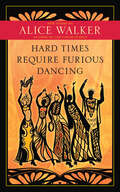
By Alice Walker. 2010
"I was born to grow, / alongside my garden of plants, / poems / like / this one“ So writes…
Alice Walker in this new book of poems, poems composed over the course of one year in response to joy and sorrow both personal and global: the death of loved ones, war, the deliciousness of love, environmental devastation, the sorrow of rejection, greed, poverty, and the sweetness of home. The poems embrace our connections while celebrating the joy of individuality, the power we each share to express our truest, deepest selves. Beloved for her ability to speak her own truth in ways that speak for and about countless others, she demonstrates that we are stronger than our circumstances. As she confronts personal and collective challenges, her words dance, sing, and heal.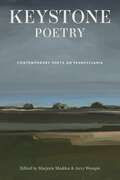
By Marjorie Maddox, Jerry Wemple. 2025
From Philadelphia to Erie, and from the shale fields to the coal mines, Keystone Poetry celebrates the varied landscapes and…
voices of Pennsylvania. This collection brings together the work of 182 poets who, with keen eyes and powerful language, commemorate the hometowns, history, traditions, and culture of the Commonwealth.Organized geographically, the poems traverse county lines, ancestral lineages, and thematic concerns—as well as gender, racial, and socioeconomic barriers. The poems in this collection seek to bring the reader close to home while fostering the discovery of new places and a deeper understanding of all those who live in the Keystone State.Keystone Poetry also includes resources for teachers. Drawing from this collection of place-based literature, high school and college educators can use students’ hometown experiences to make disciplines such as literature, composition, creative writing, history, geography, sociology, political science, and psychology more engaging and accessible. • To delve more deeply into class discussion, see “Let’s Talk About It,” a helpful aid for individual or group reflection.• To fuel creativity, access “Let’s Write About It,” a practical guide to inspire writers of all levels.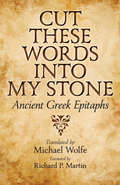
By Michael Wolfe. 2013
The lively ancient epitaphs in this bilingual collection fit together like small mosaic tiles, forming a vivid portrait of Greek…
society.Cut These Words into My Stone offers evidence that ancient Greek life was not only celebrated in great heroic epics, but was also commemorated in hundreds of artfully composed verse epitaphs. They have been preserved in anthologies and gleaned from weathered headstones.Three-year-old Archianax, playing near a well,Was drawn down by his own silent reflection.His mother, afraid he had no breath left,Hauled him back up wringing wet. He had a little.He didn't taint the nymphs' deep home.He dozed off in her lap. He's sleeping still.These words, translated from the original Greek by poet and filmmaker Michael Wolfe, mark the passing of a child who died roughly 2,000 years ago. Ancient Greek epitaphs honor the lives, and often describe the deaths, of a rich cross section of Greek society, including people of all ages and classes— paupers, fishermen, tyrants, virgins, drunks, foot soldiers, generals—and some non-people—horses, dolphins, and insects. With brief commentary and notes, this bilingual collection of 127 short, witty, and often tender epigrams spans 1,000 years of the written word. Cut These Words into My Stone provides an engaging introduction to this corner of classical literature that continues to speak eloquently in our time.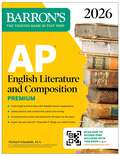
By Michael Schanhals, Barron'S Educational Series. 2025
Test change update! The College Board has recently announced a change for the May 2025 exams: the AP English Literature…
and Composition exam will be offered in a digital format only and multiple-choice questions will now feature four answer choices instead of five.Barron&’s AP English Literature and Composition Premium, 2026 includes in‑depth content review and practice. Written by Experienced Educators Learn from Barron&’s‑‑all content is written and reviewed by AP experts Build your understanding with comprehensive review tailored to the most recent exam Get a leg up with tips, strategies, and study advice for exam day‑‑it&’s like having a trusted tutor by your side Be Confident on Exam Day Sharpen your test‑taking skills with 5 full‑length practice tests in the book, including a diagnostic– in the updated format–plus detailed answer explanations and sample essays Strengthen your knowledge with key advice for answering multiple-choice questions and writing a polished essay Reinforce your learning with practice by tackling dozens of sample questions and mini-workout exercises that cover all units on the AP English Literature and Composition exam Brush up on the literary terms you should know for test day with a clear and comprehensive glossary Robust Online Practice Practice for the new digital exam with 3 full‑length practice tests on Barron&’s Online Learning Hub--updated for the test change Simulate the exam experience with a timed test option Deepen your understanding with detailed answer explanations and expert advice Gain confidence with scoring to check your learning progress Going forward, this exam will only be offered in a digital format. Barron's AP online tests offer a digital experience with a timed test option to get you ready for test day. Visit the Barron's Learning Hub for more digital practice.Publisher's Note: Products purchased from 3rd party sellers are not guaranteed by the publisher for quality, authenticity, or access to any online entities included with the product.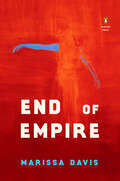
By Marissa Davis. 2025
From a prizewinning poet whose work &“points to an unfathomably bright future for the canon&” (Danez Smith), a stunningly lush…
collection about desire, resilience, and our fraught and ecstatic relationship with the natural worldA collection as remarkable for the force of its feeling as for the range of its vision, End of Empire explores the tensions of Black and American identity within an ecological framework. Inspired by the language and landscape of the poet&’s rural Kentucky hometown and the ways that inherited religious and political narratives shape our relationships with our surroundings and ourselves, these poems reckon with the ways the speaker, their body, and their natural and ideological surroundings continuously remake each other. Formally dynamic, emotionally resonant, and rich with biblical, mythological, and historical allusions, these are elegant, impeccably crafted pieces that evoke the fearsome power of nature and of the tangled, sensual self.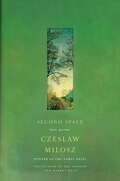
By Czeslaw Milosz. 2004
Nobel laureate Czeslaw Milosz's most recent collection Second Space marks a new stage in one of the great poetic pilgrimages…
of our time. Few poets have inhabited the land of old age as long or energetically as Milosz, for whom this territory holds both openings and closings, affirmations as well as losses. "Not soon, as late as the approach of my ninetieth year, / I felt a door opening in me and I entered / the clarity of early morning," he writes in "Late Ripeness." Elsewhere he laments the loss of his voracious vision -- "My wondrously quick eyes, you saw many things, / Lands and cities, islands and oceans" -- only to discover a new light that defies the limits of physical sight: "Without eyes, my gaze is fixed on one bright point, / That grows large and takes me in."Second Space is typically capacious in the range of voices, forms, and subjects it embraces. It moves seamlessly from dramatic monologues to theological treatises, from philosophy and history to epigrams, elegies, and metaphysical meditations. It is unified by Milosz's ongoing quest to find the bond linking the things of this world with the order of a "second space," shaped not by necessity, but grace. Second Space invites us to accompany a self-proclaimed "apprentice" on this extraordinary quest. In "Treatise on Theology," Milosz calls himself "a one day's master." He is, of course, far more than this. Second Space reveals an artist peerless both in his capacity to confront the world's suffering and in his eagerness to embrace its joys: "Sun. And sky. And in the sky white clouds. / Only now everything cried to him: Eurydice! / How will I live without you, my consoling one! / But there was a fragrant scent of herbs, the low humming of bees, / And he fell asleep with his cheek on the sun-warmed earth."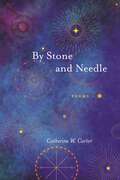
By Catherine W. Carter. 2025
Winner of the 2025 L. E. Phillabaum Poetry AwardShimmering to the pulse of the unseen, By Stone and Needle circles…
like a compass needle around the figure of the witch. Catherine Carter concocts a book of secular spells and incantations for engaging with, and meditating upon, a world in which all things are connected, in which symbol slides into literal, spirituality into science, exact observation into lamentation and love.The poems in By Stone and Needle spin connecting threads between night sweats, witch drownings, creation stories, pedicures, goddesses—and, especially, between miraculously interconnected ecosystems and the forces that threaten them. Speakers encompass personae including lactobacilli bacteria, bodily yeasts, and the classical witch Medea, while elsewhere a contemporary version of the goddess Artemis appears in Appalachia. Carter’s poetic vision imbues everyday moments such as putting on a coat, piercing an ear, confronting racism and patriarchy, or eating onion slices with a new definition of magic as “the human thing.”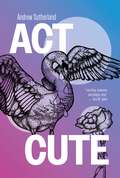
By Andrew Sutherland. 2025
The second poetry collection from Queer Poz (PLHIV) writer and performance-maker. In Act Cute, the poet addresses the gap between…
memory and the present, and asks how to perform a coherent self amidst the forces of nostalgia, institutional entanglements and reckonings, and queer desiring. Shifting between autofictive address and canonical personae, the structural codes of romantic drama uneasily frame the poet-as-actor through five sections, titled 'Audition Sides', 'you stop me at the airport and tell me that you love me', 'twink death in Europa!!', 'Wedding Scenes' and 'forgiveness'.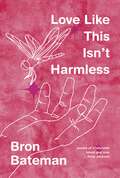
By Bron Bateman. 2025
Through a fiercely feminist lens, Bateman's latest collection of poems confronts tough themes like sexual abuse and domestic violence with…
unapologetic honesty and profound insight. From intimate portrayals of family dynamics to reimaginings of mythos, these poems will spark conversation and contemplation.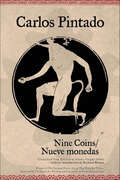
By Carlos Pintado. 2015
The winner of the Paz Prize for Poetry, presented by the National Poetry Series; published in both English and Spanish.—The…
winner of the Paz Prize for Poetry, presented by the National Poetry Series; published in both English and Spanish.—Carlos Pintado is a finalist for the 2015–2016 CINTAS Foundation Fellowship in Creative Writing —Named a Notable Translation of 2015 by World Literature Today—The Moon has been selected as one of Vancouver Poetry House’s 10 Best Poems of 2015Translated by Hilary Vaughn Dobel.Nine Coins/Nueve monedas is a palimpsest of love, fears, dreams, and the intimate landscapes where the author seeks refuge. These poems appear like small islands of salvation, covered with the brief splendor of the coins people sometimes grab hold of, taking the form of a very personal and often devastating map. Each poem is a song at the edge of an abyss; an illusory gold coin obtained as a revelation; a song of hope and understanding. The volume’s dreamlike geography prompts the reader to revisit the thread, the labyrinth, and the Minotaur’s legends. The night streets of South Beach, Alexandria, and many other cities, lit by the fading torches, seem to guide us in conversation with characters who are long dead. The Paz Prize for Poetry is presented by the National Poetry Series and The Center at Miami Dade College. This annual award—named in the spirit of the late Nobel Prize–winning poet, Octavio Paz—honors a previously unpublished book of poetry written originally in Spanish by an American resident. An open competition is held each May, when an esteemed Spanish-speaking poet selects a winning manuscript. The book will be published in a bilingual edition by Akashic Books. The winning poet will also receive a $2,000 cash prize.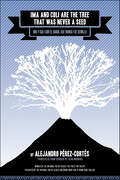
By Alejandro Pérez-Cortés. 2021
The new winner of the Paz Prize for Poetry, granted by the National Poetry Series, is the author’s impressionistic homage…
to his hometown of Colima, Mexico.“In this remarkable bilingual debut . . . Pérez-Cortés cracks open the name of his hometown, Colima, to generate a vast mythology . . . The side-by-side presentation of the original Spanish and its English translation adds another layer to this engrossing volume.” —BooklistA Poets & Writers Page One SelectionIma and Coli Are the Tree That Was Never a Seed is Alejandro Pérez-Cortés’s personal genesis of Colima, Mexico, published here in both English and Spanish. The tree is an element/character in the book that appears and disappears throughout. Some poems are set in an ancient pre-Hispanic Colima; others reflect the reality of a modern-day Colima, sadly stigmatized and eroded by violence perpetrated by the narcos.In his introduction, preeminent Cuban poet José Kozer praises Pérez-Cortés: “Ima and Coli Are the Tree That Was Never a Seed comprises a voice that I consider poetic and that should be cared for and listened to with true interest. A voice that encompasses all, one that seeks to integrate, remake, and modify normative language when necessary, and to distort language that allows a better perception of the present and of everything that is historically behind a contemporary poet.”The Paz Prize for Poetry is presented by the National Poetry Series and Miami Book Fair at Miami Dade College and is awarded biennially. Named in the spirit of the late Nobel Prize–winning poet Octavio Paz, it honors a previously unpublished book of poetry written originally in Spanish by an American resident.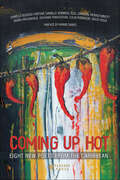
By Danielle Boodoo-Fortuné, Danielle Jennings, Ruel Johnson, Monica Minott. 2015
Eight talented Caribbean poets are featured in this second publication from Peekash Press.Featuring a preface by Kwame Dawes.Featuring poems from:…
Danielle Boodoo-Fortuné, Danielle Jennings, Ruel Johnson, Monica Minott, Debra Providence, Shivanee Ramlochan, Colin Robinson, and Sassy Ross. With a preface by Kwame Dawes. With a generous sample from each poet, this anthology is an opportunity to discover some of the best, new, previously unpublished voices from the Caribbean. This is a generation that has absorbed Derek Walcott, Kamau Brathwaite, Martin Carter, and Lorna Goodison, while finding its own distinctive voice. Peekash Press is a collaboration between Akashic and UK-based publisher Peepal Tree Press, with a focus on publishing writers from and still living in the Caribbean. The debut title from Peekash, Pepperpot: Best New Stories from the Caribbean, was published in 2014.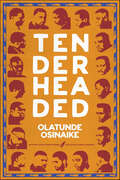
By Olatunde Osinaike. 2023
Tender Headed, selected by Camille Rankine as a winner of the 2022 National Poetry Series, is a musical and formally playful…
meditation on Black identity and masculinity "In this dynamic debut collection, Nigerian American poet Osinaike unpacks ideas of masculinity with playful musicality . . . Acutely attuned to poetic lineage, Osinaike cites established poets Yona Harvey, Ladan Osman, and Morgan Parker, setting a context for his own new and versatile voice." —BooklistThe irony of transformation often is that we mistake it to have occurred long before it does. Tender Headed takes its time in asserting the realization that growth remains ever ahead of you. Examining the themes of Black identity, accountability, and narration, we encounter a series of revealing snapshots into the role language plays in chiseling possibility and its rigid command of depiction. Olatunde Osinaike's startling debut sorts through the many-minded masks behind Black masculinity. At its center lies an inquiry about the puzzling nature of relationships, how ceaseless wonder can be in its challenge of a truth. In the name of music and self-identity, the speaker weaves their way through fault and how it amends Black life in America.This is demonstrated best in how the demanding, yet vulnerable tone for the collection is set in "Men Like Me," its restless opening poem. Here, we find the speaker reciting a chronicle of generational neglect from men that became him also. Earnest and sharp, there is a beauty in seeing a poet not shy away from both the melancholy and resolve of rescripting their path while cherishing their steps and missteps along the way. This collection is a panel aching of fathers, sons, uncles, grandfathers, all of whom would do well to join in and confront shared privileges that are typically curtailed or altogether avoided in conversation. Tender Headed entrusts the heart to be a compass, insisting on a journey unto itself and a melodic detour toward tenderness precise with its own footing.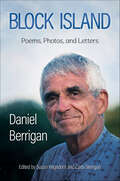
By Daniel Berrigan. 2025
A Voice and a Poet for All Times It is impossible not to be gripped by the spectacular details of…
Daniel Berrigan's life. He was Paul Simon's "radical priest" smiling in handcuffs. The Jesuit activist excommunicated by his peers and imprisoned by the state. The unapologetic advocate for society's disempowered. The defiant vandal of objects that fed bodies and materiel to the war machine. And the earnest, yet somehow serene, face emanating from televisions denouncing the inhumanity of that very machine's deeds. Yet Daniel was first an accomplished poet, inspired in his faith by dreams of peace. It was from this profound contemplation of the world from an early age that his courageous acts of civil disobedience and humanitarianism were born. In this collection of interconnected poems, Daniel Berrigan writes about his intimate bond with his small cottage built especially for him on Block Island. We see his complete integration into the island itself in his reverence for the everyday life and ever-changing weather winding around him. Yet soon we also discover themes of God and the soul, the land and the sea, friendship and loss, time and impermanence, and the tension between society's potential and its spiritual impoverishment. Embraced by personal and scholarly writings from friends who remain students of Daniel's ideas and lifeworks, as well as images and letters that enrich our perceptions of Daniel, this ever-timely collection is an essential object for poets, activists, the faithful, and all forms of countercultural rebel alike.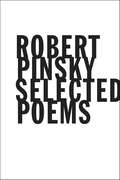
By Robert Pinsky. 2011
Intense verbal music with a jazz feeling; invention against the grain of expectation; intelligence racing among materials with the variety…
of a busy street—these have been the qualities of Robert Pinsky's work since his first book, Sadness and Happiness (1975), celebrated for setting a new direction in American poetry. At that time, responding to a question about that book, Pinsky said: "I would like to write a poetry which could contain every kind of thing, while keeping all the excitement of poetry."That ambition was realized in a new way with each of his books, including the book-length personal monologue An Explanation of America; the transformed autobiography of History of My Heart; the bestselling translation The Inferno of Dante; and, most recently, the savage, inventive Gulf Music. That variety and renewal are represented in this brilliantly chosen volume.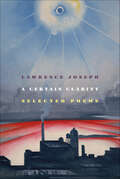
By Lawrence Joseph. 2020
A selection of poems from the celebrated poet and lawyerDrawing from his first book, Shouting at No One, from 1983,…
and continuing through to his most recent, So Where Are We?, from 2017, A Certain Clarity provides a generous selection of Lawrence Joseph’s "poetry of great dignity, grace, and unrelenting persuasiveness” (John Ashbery), each poem “an inspired, made thing by a poet-advocate who has honed a timely song within an urgent testimony that embraces the complex density of truth” (Yusef Komunyakaa). Joseph’s poems constitute one of the most essential and visionary bodies of work in contemporary American poetry. No other American poet covers the territory Joseph does. His ever-new interactions of thoughts, voices, and languages—influenced by his Lebanese and Syrian Catholic heritage, his professional life as a lawyer and legal scholar, and the economies of the world of working-class labor from which he comes—bear witness, on multilayered spatial and temporal planes, to the velocities of global and historical change, and to power structures embodied in endless wars, unleashed capital, racism, and ecological destruction, presenting an ongoing chronicle of what it means to write poetry in the turbulent times in which we live. But also integral to Joseph’s poetry is a sensual intimacy, passionately driven by an acute awareness of a deeper order in which beauty, love, and justice are indistinguishable. Meticulously formed, emotionally fierce, intellectually challenging, Joseph’s poems press back against the high-stakes pressures of our time with a moral and aesthetic intensity not easily forgotten.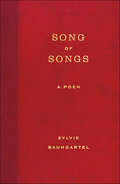
By Sylvie Baumgartel. 2019
A debut poetry collection from a writer whose vivid verse explores the connections and relationships that make us humanSometimes I…
like to feel sexy. Sometimes I don’t. Sometimes I like to be very plain. Invisible almost, hiding in plain sight. I want to hide and to be found. In the spirit of the biblical Song of Solomon, Sylvie Baumgartel’s Song of Songs takes the subjects of love and worship, and brings them to the desperate, wild spaces of domestic life. With a voice at once precise and oneiric, Baumgartel explores the landscapes of sex and desire, power and submission, in this groundbreaking book-length poem that forces us to question the bounds of devotion. An ambitious and vivid debut, Song of Songs is a work of breathtaking honesty, couched in language few of us are brave enough to speak aloud.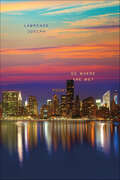
By Lawrence Joseph. 2017
“So where are we?” asks Lawrence Joseph in the title poem of his powerful and moving sixth book of poetry.…
Beginning where his acclaimed collection Into It left off, amid the worldwide violence unleashed by the World Trade Center terrorist attack, Joseph’s poems—global and historic in scope—boldly encounter the imaginative challenges of our time: issues of political economy, labor and capital, racism and war, and “the point at which / violence becomes ontology, / these endless ambitious experiments in destruction, / a species grief.” Against these realities, Joseph presents an intimate, sensuous language of beauty and love, “a separate / palette kept for each poem,” a constant shifting and fluid play of sound and tone. With incisive intensity, intelligence, emotional force, and fierce, uncompromising vision, Joseph speaks from deep within the truths of poetry’s common language. So Where Are We? is extraordinary new work from one of our most distinctive poets.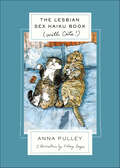
By Anna Pulley. 2016
Lesbian sex has been confounding people since the dawn of time. What is it that two women do together exactly?…
The Lesbian Sex Haiku Book (with Cats!) is a humorous guide to lesbian sex, dating rituals, and relationships, and aims to dispel all myths. Haiku paired with hilarious watercolor illustrations of cats in various stages of sexual awkwardness will enlighten, demystify, remystify, and most importantly entertain as you learn about all the aspects involved in girl-on-girl action. From lesbian pick-up lines: Pronounce Annie Proulx's name correctly—watch lady's cargo pants fall off. To icebreaker haiku for first dates: It has been MANY years, but I'm not done griping about The L Word. To, of course, the mechanics of lesbian sex: It's like straight sex but afterwards we ask ourselves, "We just had sex, right?" Lesbian sex is like water polo—no one really knows the rules. This laugh-out-loud book is the perfect gift to amuse and educate your friends, loved ones, and lovers.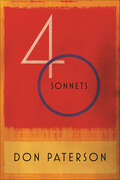
By Don Paterson. 2015
This collection, which won the 2015 Costa Poetry Award, is an exhibition of the Dundee-born poet’s stunningly accomplished adoption of…
the sonnet’s ancient structureThis collection from Don Paterson, his first since the Forward Prize–winning Rain in 2009, is a series of forty luminous sonnets. Some take a traditional form, while others experiment with the reader’s conception of the sonnet, but they all share the lyrical intelligence and musical gift that has made Paterson one of our most celebrated poets.Addressed to friends and enemies, the living and the dead, children, musicians, poets, and dogs, these poems are as ambitious in their scope and tonal range as in the breadth of their concerns. Here, voices call home from the blackout and the airlock, the storm cave and the séance, the coal shed, the war, the highway, the forest, and the sea. These are voices frustrated by distance and darkness, which ring with the “sound that fades up from the hiss, / like a glass some random downdraught had set ringing, / now full of its only note, its lonely call.”In 40 Sonnets, Paterson returns to some of his central themes—contradiction and strangeness, tension and transformation, the dream world, and the divided self—in some of the most powerful and formally assured poems of his career.